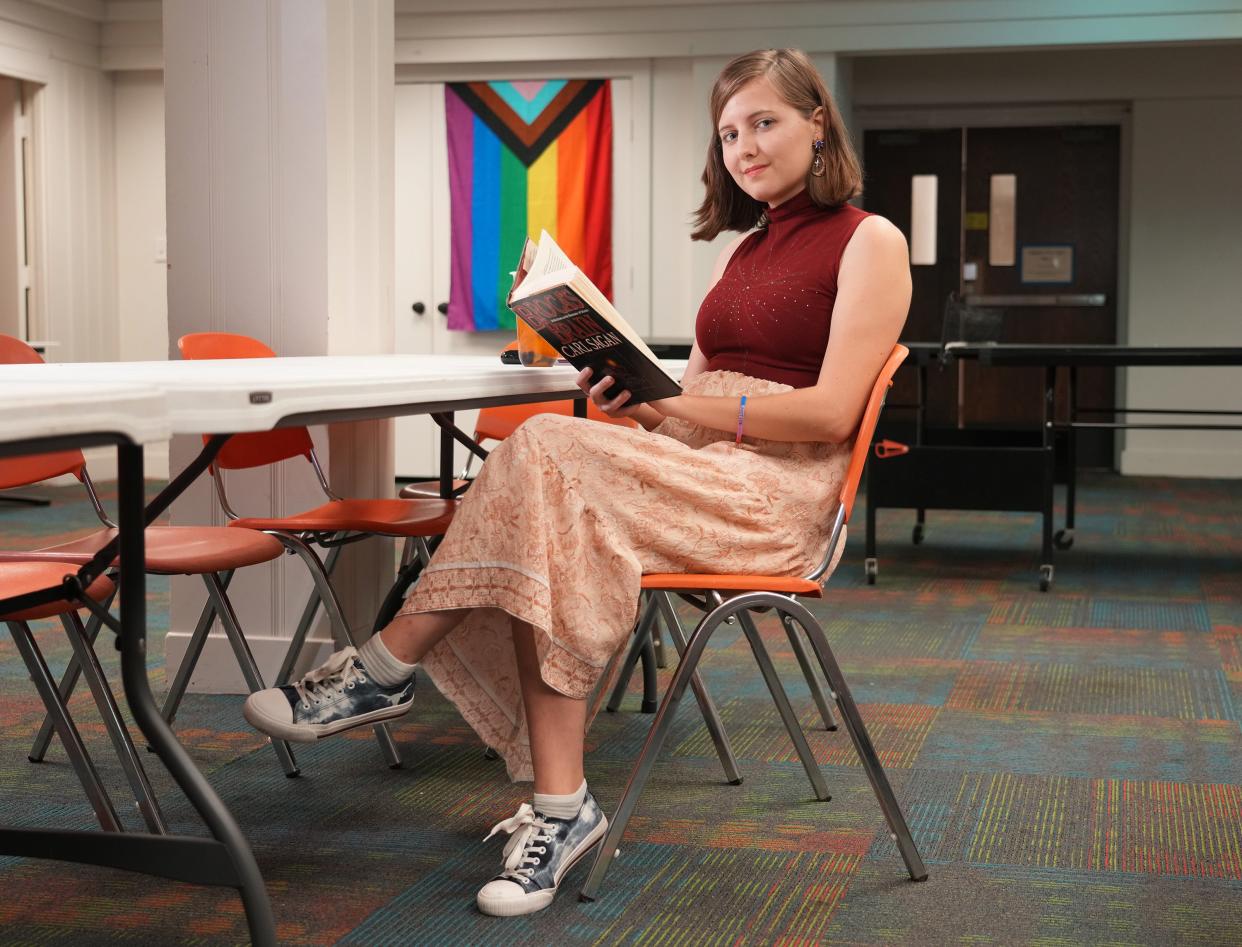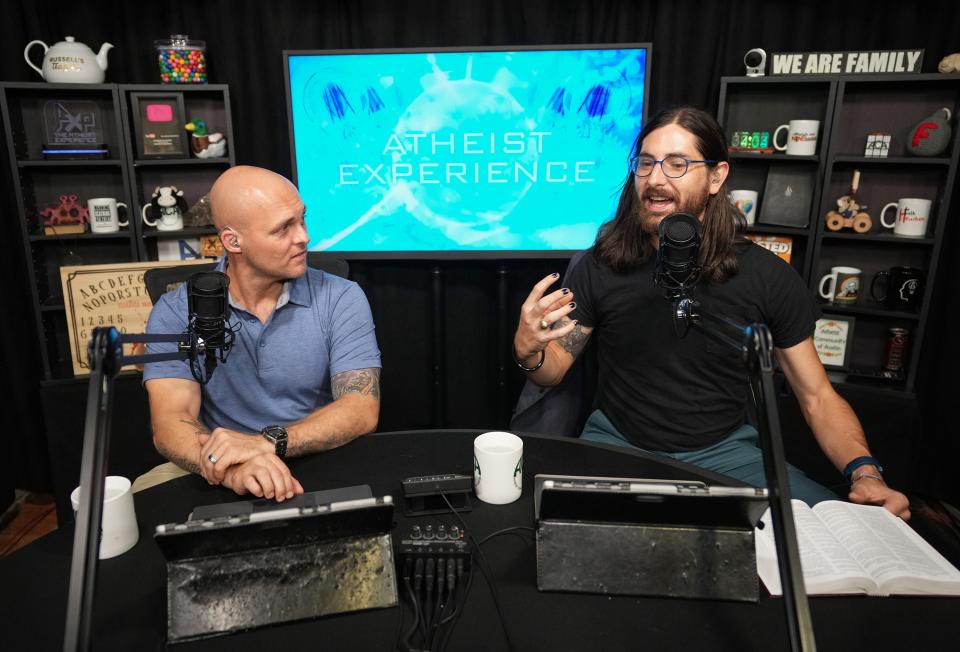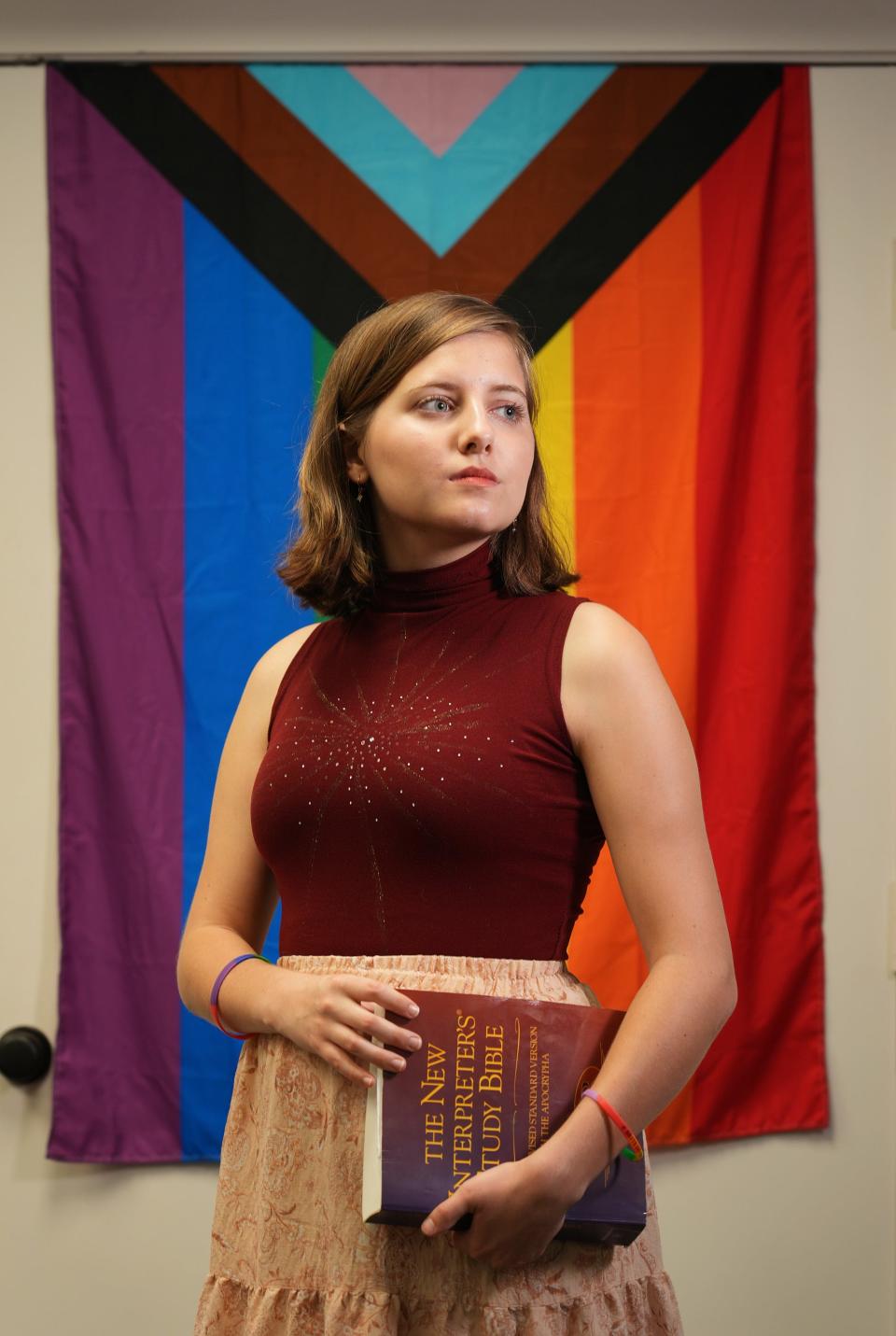More young adults are not religious, but Christianity still dominant religion in US

Since the 1950s, there has been a decline in attendance and membership in every major Christian denomination, with those rates falling quickly in the past two decades.
In 1990, 72% of white Americans identified as Christian; in 2022, only 42% did. Even among traditionally devout ethnicities, the number of churchgoers has decreased, the Pew Research Center found in its most recent study on religion.
A new analysis found that Catholicism among U.S. Latinos, especially those ages 18-29, is declining. Forty-nine percent of that age group identified as religiously unaffiliated, and instead as atheist, agnostic or “nothing in particular,” compared with 31% unaffiliated in a 2013 survey.
While Pew’s new research focused solely on U.S. Latinos, a 2022 study by the American Survey Center, which broke down religious preferences by generation, showed that up to a third of millennials (born between 1981 and 1996) and Generation Zers (born between 1997 and 2012), regardless of ethnicity, have drifted away from the religion of their parents and grandparents.
The Public Religion Research Institute concluded that in recent decades, the American religious landscape has shifted dramatically because of political, racial and social differences, identifying the catalytic effect of the COVID-19 pandemic and state legislative battles over LGBTQ+ and reproductive rights. The study further revealed that 24% of Americans have engaged in religious switching, meaning they had previously practiced a different religious tradition or denomination from the one they do now.
While Christianity is still the most popular religion in the U.S., surges in Hinduism, Buddhism and Islam over the past 60 years have increased ethnic and religious diversity. These changes in demographic diversity, coupled with Christian disaffiliation, continually challenge religious leaders and organizations facing decreased numbers of the faithful amid an increasingly polarized cultural milieu.
Social media and religious trends
Chad Seales, a University of Texas professor of religious studies who has spent his career researching religious trends in the U.S., pointed to social media as the connective force prompting younger generations to question their beliefs.
“Social media allows atheists and agnostics in rural areas to connect with larger communities outside their hometowns. The split between urban and rural being flattened by technology creates the possibility of finding communities that affirm young people who may not fit into their parents' church,” he said. “These atheists gather together to form a community, which actually starts to look a lot like a church or a congregation.”
Seales says there have also been notable changes in parenting styles in regards to religion. While previous generations of Christian parents instilled a fear of hell and severe consequences for nonconformity, modern parenting allows children to explore their own thoughts and ideas, making the conscious decision whether to participate in organized religion. Some forgo religion entirely, instead deciding to pursue some other form of spirituality.
Seales found that many of those who initially choose to leave their childhood religion often return to it, especially after they become parents. He cited the need for reference to a higher power because “it’s difficult to survive as a human being without being attached to a community that tells you what birth, marriage, or life and death look like.”
What is spirituality? How is it different from religion?
Unlike the wearing of a cross around the neck, spirituality is oftentimes a deeply private and personal practice, connected to an increase in individualism, making it difficult to quantify among a large population.
Spirituality is defined as how individuals make meaning, in relation to what they consider sacred or spiritual, and it might or might not be connected to an institutional religion, deity or God. In 2017, Pew found that 27% of American adults surveyed identified as spiritual but not religious, though 48% of those surveyed identified as both religious and spiritual.
According to Seales, one technical way to distinguish spirituality from religion is that religion requires shared public rituals, but spirituality can be practiced alone as an individual, ranging from following Oprah to reading devotional magazines or journaling.
“In Catholicism specifically, it is a religious ritual when you take the Eucharist together in a service and everyone can see that you're taking the Eucharist, but your spirituality may be something that people can't see unless you tell them about it or you express it in some way,” he said.

Can an ancient religion offer guidance on modern issues?
Unlike many in her age group, Kristen Tibbetts, 20, has resisted the current trend among millennials and Gen Zers, having consistently attended services at Hope Chapel in Austin, Texas, a nondenominational evangelical church, since she was 6 years old.
As a student at UT, she has been involved with Longhorns for Christ, a Christian organization for students, participating in their life groups and Sunday services. The organization facilitates Tibbetts’ wish to have conversations and amicable disagreements with Christians close to her age.
“With social media it’s set up to feed you content that you already agree with, so there's this situation where you're not really getting outside of your own beliefs. I appreciate that aspect of my (Longhorns for Christ) community," she said. "I have friends that believe different things than me, even though we're all in the same church. I do prefer to have disagreements peacefully with people and still love each other at the end of the day.”
Despite there being socially accepting religious organizations and congregations, Christy Powell, 35, a licensed professional counselor, has stepped away from his Christian roots. Raised in a fundamentalist Christian family, he began to question his religious beliefs in his 20s. Now based in Austin, Powell helps others grappling with religious trauma.
“I realized that the Bible itself was fundamentally incompatible with the idea that homosexuality is natural and ingrained in our DNA. It was something that I just didn't think that the Bible could wrestle with,” he said. “So when I was about 25 I finally admitted to myself that I didn't believe in God anymore.”
For more than four years, Powell has been involved with the Atheist Community of Austin, as both a volunteer, engaging with people who have questions about religion and its connection to gender and sexuality, and a member of its board of directors.

Like Powell, Alexa Morton, 21, was raised in a Christian household with a strong sense of faith, regularly attending Sunday services with her family.
“After realizing I was somewhere on the LGBTQ+ spectrum in middle school, I remember the minister saying that marriage is only between a man and a woman,” she said. “It really stuck with me and felt like I was not accepted there.”
After realizing that her faith and sexuality were at odds, Morton sought out a new congregation that was more affirming, citing the desire for a community where she could study and discuss the Bible from an academic and historical perspective. As a student at UT, Morton researched her options before choosing Labyrinth, a progressive Christian ministry and community.
Morton noted that many friends, particularly those who grew up in the Bible Belt, have also stepped away from the Christian practices of their childhood, finding the religion too antiquated to coexist with progressive beliefs.
“A lot of people have drifted away from Christianity because many of them see being progressive and being Christian as diametrically opposed, when they really don't have to be exclusive,” she said.
This article originally appeared on Austin American-Statesman: Half of young Latinos now religiously unaffiliated, study finds

